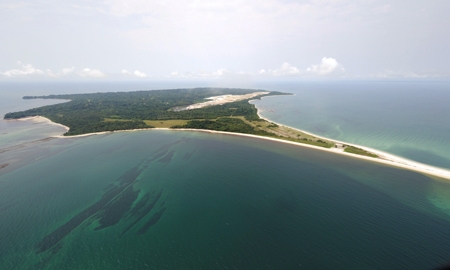Equatorial Guinea is one of the most stable and richest countries in Africa. Although it has escaped the media spotlight, the small Western country is seeing several developments that are helping to raise its profile and open it up to the wider world.
Equatorial Guinea suffered under the leadership of a dictatorial government until 1979, which destroyed the progress it had made prior to its colonial independence in 1968. These years were a particularly hard time socially, politically and economically and have certainly colored public perception of the nation.
In 1979 President Teodoro Obiang Nguema Mbasogo took over power and made concerted efforts to exploit the natural resources of the country – specifically oil. However it was another 15 years before the discovery of huge oil reserves by a small U.S. company called Walter Oil & Gas was able transform the country’s economic fortunes. Indeed, this small company discovered more oil than it could export and consequently sold its licenses to Exxon Mobile Corp.
Today there are a number of North American petroleum companies exploring the country for oil. Production capacity has grown significantly in the last ten years with close to 300 million barrels of production. Exploration continues with estimates of a further 30 years of oil production from the country. Equatorial Guinea also has natural gas reserves which have been tapped for exploration in recent years.
The government has set itself the goal of upgrading its infrastructure, economy and resources as part of the Horizon 2020 plan.
70% of the infrastructure projects have been completed and this figure is expected to continue rising in the future.
|
The natural resources boom has opened the country’s doors to the wider world and is something those in government want to see continued. Today, thanks to the boom in petroleum, the country is at a crossroads. The economic interest has transformed the perception of the country from one of a dangerous place, to a successful and growing economy.
In recent times the government has sought to open public perception of the country through various initiatives and in hosting major international events. Equatorial Guinea hosted the African Union summit in 2011. According to the Ministry of Information and Tourism, the success of this event was due to a grand consensus between all parties and leaders, and as a result, has been one of the main steps in opening the country to the international community.
Malabo, the island to the west of Equatorial Guinea, hosted the South America-Africa Summit in 2011 and in 2012 the country hosted the Africa Cup of Nations soccer tournament. “It can be said that the infrastructure to support this has been the equal to any in the West and you are witnesses that the streets are not full of military,” said officials at the Ministry of Information and Tourism.
Equatorial Guinea is harnessing its work as a part of its long-term development plan, Horizon 2020. The government has fixed itself on upgrading its infrastructure, economy and resources before the year 2020.
The government has made renovating the country’s existing infrastructure its prime objective. According to the Ministry of Information and Tourism, 70% of the infrastructure projects have been completed and this is expected to continue strongly in the future.
The other priority for Equatorial Guinea is tourism. The country is upgrading its infrastructure to deal with a growing tourism influx, which even the islands of Annobon and Corisco are enjoying. EG has already set out on projects to build new hotels in the next five years and has opened up a television signal in Annobon. Communications remains a priority with much focus on developing the Internet and ensuring everyone will have a working telephone.
According to the Ministry of Information and Tourism, the government is looking to build up all the necessary infrastructure for development in the next three years and will work with foreign companies to do so. The natural beauty, beaches and tourism sights are sufficient to ensure the country won’t fall back into economic difficulties.
Equatorial Guinea also holds fishing as one of its highest priorities. The country’s sea territory is 300 times bigger than the land space and marine resources have hardly been exploited at all. This is one of the priority sectors for Horizon 2020. The fishing sector offers great opportunities for foreign investors.
The government is helping to develop the fundamentals behind the tourism sector but the idea is that this will encourage private investors to put money in and aid development as well.
This is also the case as the oil business develops in the country. According to the Ministry, Equatorial Guinea has a good working relationship with the U.S. – the biggest producer and exporter of the African nation’s oil and gas – and hopes the latter will center its attention on Equatorial Guinea and foster a more preferential relationship in the future.

0 COMMENTS